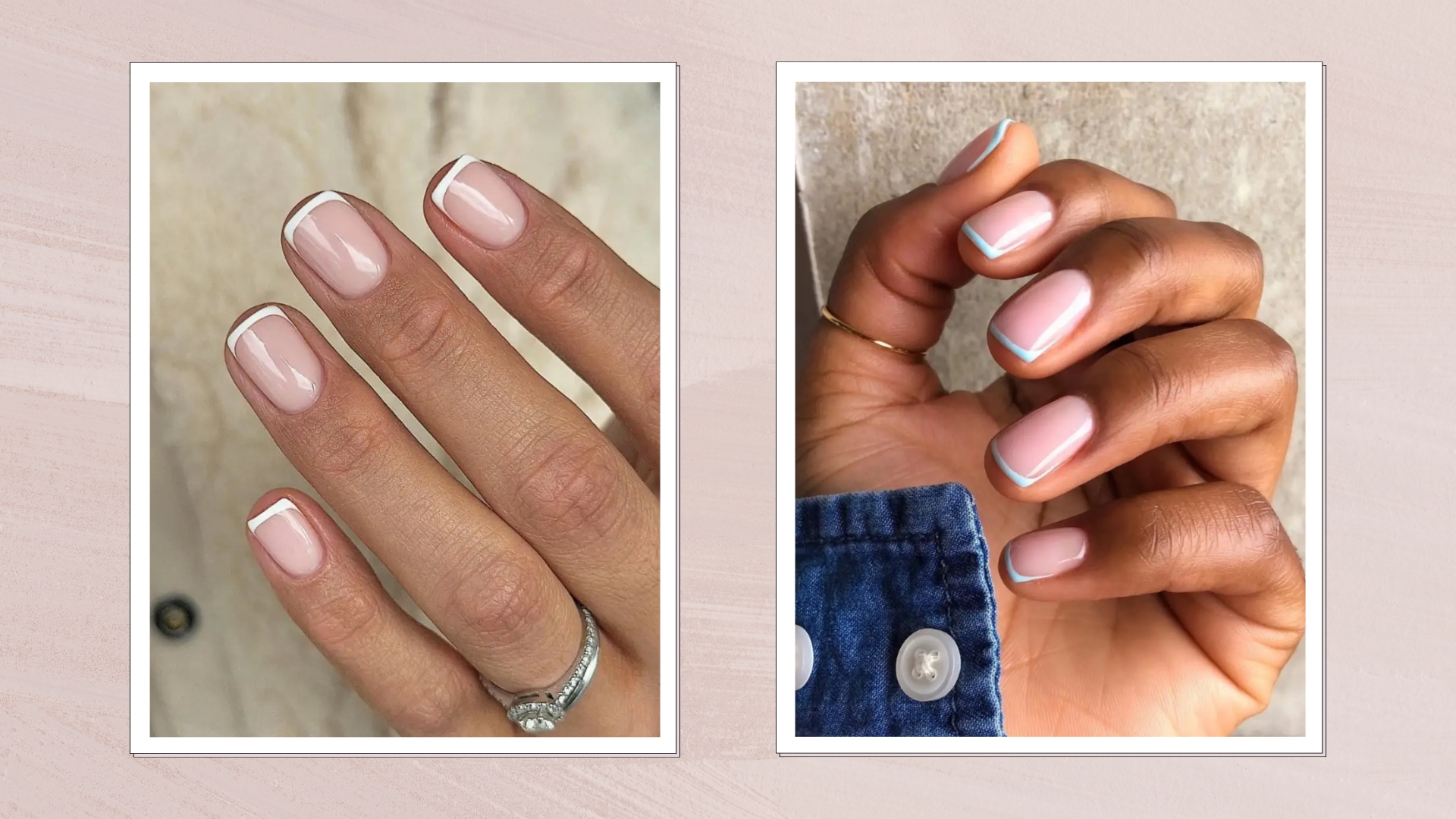Is it important to have sex to maintain a relationship? Here's what the experts say
Is it important to have sex? Sex therapists say it depends on the couple


Is it important to have sex? There's so much emphasis placed on the importance of sex by tradition, society, and the media, if you've found your love life dwindling in this department over the last few years, you may find yourself asking this question.
If this is the case for you, it might also help to know you're not alone in asking it. Recent studies from all over the world, including from San Diego State University in the US and London School of Hygiene and Tropical Medicine in the UK, have found declines over time in sexual activity across the whole adult population since 2009. Even Valentines' Day has taken a hit, according to dating app Badoo's survey, with only 66% of Brits reportedly having sex on the so-called 'day of love'. And while reasons given in the research range from technological distractions to lifestyle changes like increased stress levels, the scientists have yet to put their finger on the main cause.
But does it even matter? When it comes to maintaining our romantic relationships, we know there's much more to it than a healthy sex life. It's entirely possible to revive romance in a relationship, experience pleasure, and learn how to be intimate without sex. Here, woman&home speaks to two certified sex therapists to determine how important sex really is in a relationship and how to discuss your sex life with your partner if you're looking to make a change.
Is it important to have sex?
Yes, sex can be a very important part of a relationship for some people. Alongside the fact it's pleasurable and fun, a study by Florida State University shows sex can help to cement a romantic connection with a physical one, and help couples feel more bonded to each other and secure in the relationship. Research even shows there are health benefits associated with having sex (linked to having an orgasm, so you could also experience these without the presence of another person as well). However, you'll only experience these benefits if you actually enjoy sex in the first place and want to have it.
"It's easy to think that sex is important because we've been taught that something is wrong with us if we aren't having it in our relationship, when really it doesn't have to mean anything is wrong at all," explains Lyndsey Murray, a couples counselor and AASECT certified sex therapist. "I often challenge my clients to define why it's so important to them. Is it just to have an orgasm? Does it make you feel closer to your partner? Is it the primary way that you feel wanted and desired?"
The importance of sex within your relationship should be entirely defined by you as a couple and it should only ever be as important as you think it is, agrees licensed couples and sex therapist Kendra Capalbo. If you're not having sex, it's by no means one of the signs your relationship is over. "For example, I once worked with a couple who came to me because they were not having sex. They had a very intimate relationship in all other ways and after a few sessions, I finally asked if the lack of sex felt like a problem for them or if they just thought they were supposed to be having it. They each said that they actually did not mind the fact they weren’t having sex and it did not appear to dissuade them from the amount of intimacy and connection they shared in their relationship."

This was not a couple that needed therapy, she continues, because there was no problem to solve. "They were fine, they didn't need therapy. They just needed someone to validate that it was okay they didn't have as much interest in sex, so long as it was a feeling they both shared."
Sign up for the woman&home newsletter
Sign up to our free daily email for the latest royal and entertainment news, interesting opinion, expert advice on styling and beauty trends, and no-nonsense guides to the health and wellness questions you want answered.
Everyone is different and each person, even within the same relationship, can have their own definition of what sex is and assign their own level of importance to it. For example, if you identify as asexual, you may not find sex to be a necessary part of a relationship at all. It's only when this level of importance differs within a couple that it becomes a problem and you may need to learn how to establish deal breakers in a relationship.
The importance of sexual compatibility
"Often when entering a relationship or getting married, couples don't talk about their expectations in [the sex] department," says Murray. "It's assumed that you're in a relationship so you'll have sex, and if one person starts to feel like it's not happening enough, it becomes distressing for both partners." This is otherwise known as a lack of sexual compatibility and it's when a couple has different sexual needs, preferences for activity, frequency, and different turn-ons.
It's very common for there to be some differences between the two of you in this area, explains Capalbo, who also owns Esclusiva Couples Retreats, but too large of a gap can cause issues. "When one partner wants to have sex more than the other, it can lead to feelings of rejection and insecurity. It can also lead the partner with the greater sex drive to start feeling resentful at the sacrifice they might feel they're making for their partner," she says, while the other partner feels the pressure to perform when they may not want to.
Sexual compatibility also naturally changes over time as you grow together as a couple. Early in the relationship, you might have found yourselves totally on the same page about sex, easily falling into bed together and trying out all the best sex positions. However, if you've been together for a few years or things have changed in the dynamic of your relationship recently, different responsibilities and day-to-day experiences may be causing you to drift in different directions sexually.
Sexual incompatibility over a short period may not be too much of an issue but big disparities in sex drive, wants, and needs could cause problems in the long term, especially if you don't talk to your partner about what's going on. "I think the most important way of coping with this is through communication and thinking outside of the box," she says.
How to talk to your partner about your sex life
- Explore why the change might have happened: Part of the rebuilding process is addressing the reasons behind your change in sex drive, says Capalbo. "Is it something that has always been present or is there an emotional or physiological explanation for it that can be addressed? Our libido ebbs and flows throughout our lives and is not a constant, so trying to understand this can lessen the insecurity." You'll need to be able to build trust in your relationship to have this conversation though, as it might not be an easy one.
- Find each other's motivations for sex: "For the partner who doesn't want sex as much, they could feel that their partner only wants sex from them and they can feel objectified. For the partner who doesn't want as much sex, they can start to feel like their partner is not attracted to them anymore. Clarify the motivation and reasons for why you want to have sex," says Murray.
- Discuss what turns you on: "Identify what could make someone feel more wanted both in and outside of sex, and what could help increase someone's desire that may not be happening right now," she suggests. It might even help you spice up your relationship and discover something new about each other.
- Address any underlying issues in your relationship: "It's not uncommon for past hurt or disconnect to be a reason that one person may not be very interested in sex. Some people view sex as the ultimate connection, while others need to feel connected before they can feel sexual. Work through any of this tension that may be happening," Murray recommends.

Grace Walsh is woman&home's Health Channel Editor, working across the areas of fitness, nutrition, sleep, mental health, relationships, and sex. She is also a qualified fitness instructor. In 2025, she will be taking on her third marathon in Brighton, completing her first ultra marathon, and qualifying as a certified personal trainer and nutrition coach.
A digital journalist with over seven years experience as a writer and editor for UK publications, Grace has covered (almost) everything in the world of health and wellbeing with bylines in Cosmopolitan, Red, The i Paper, GoodtoKnow, and more.
-
 We're in awe of Sienna Miller's easy-going and 'piece-y' hairstyle and how perfect it is for spring
We're in awe of Sienna Miller's easy-going and 'piece-y' hairstyle and how perfect it is for springThis laid-back hairstyle is - quite literally - making waves this season
By Naomi Jamieson
-
 We never thought we'd see this 'dated' manicure make a chic comeback, but here it is - and we're on board
We never thought we'd see this 'dated' manicure make a chic comeback, but here it is - and we're on boardClean and angular, short square French tips are a go-to this season for a practical but stylish manicure...
By Naomi Jamieson